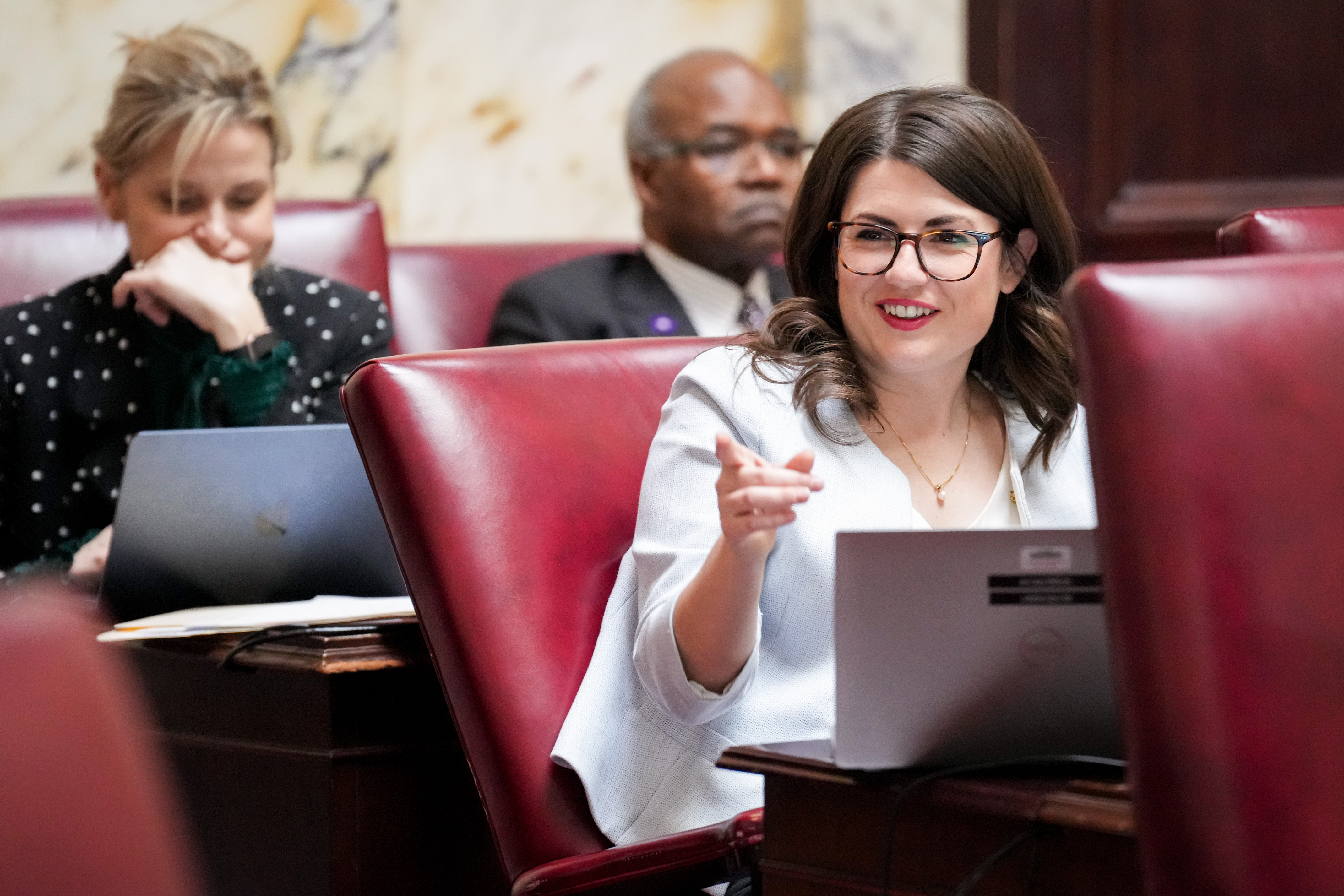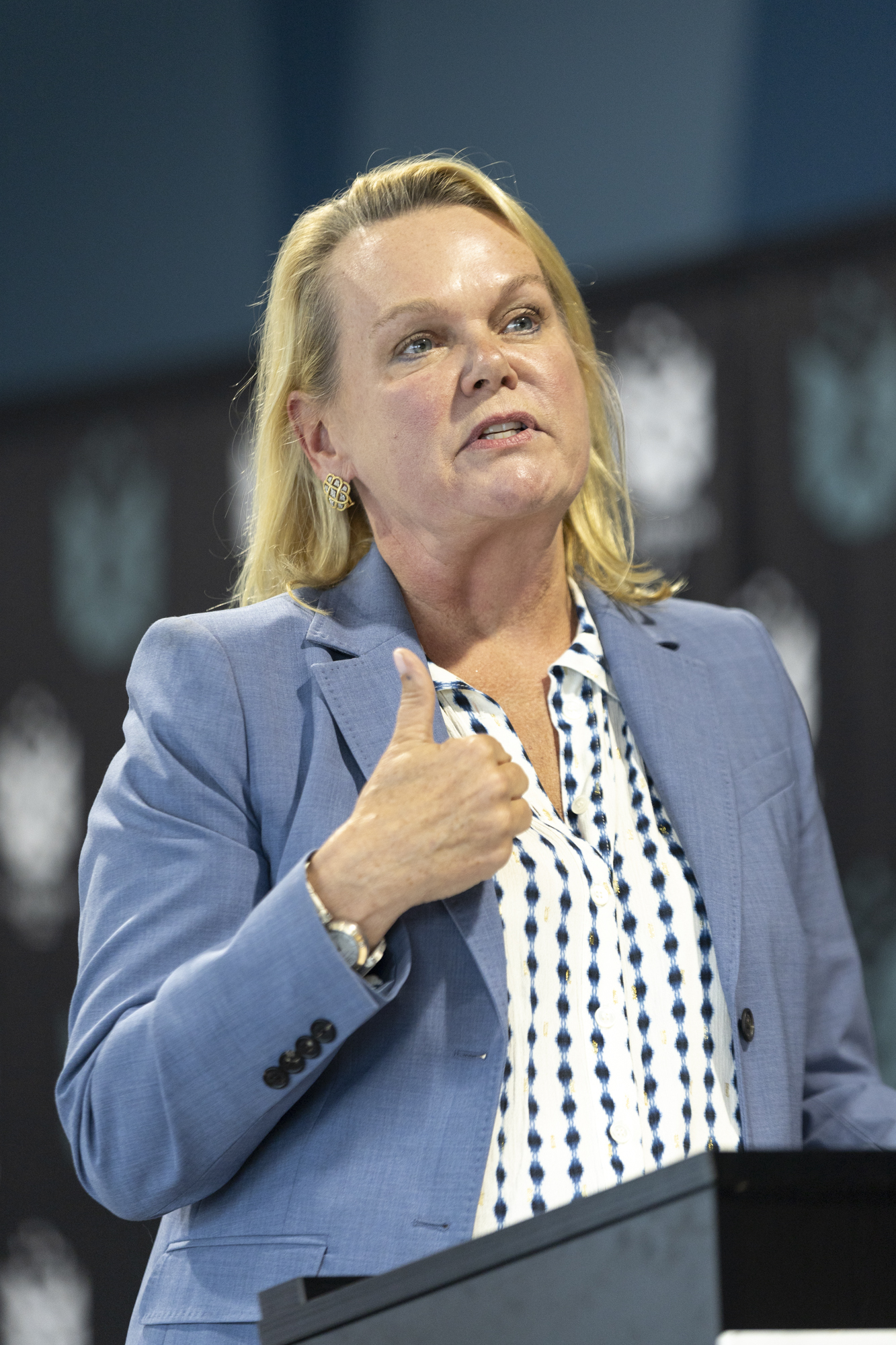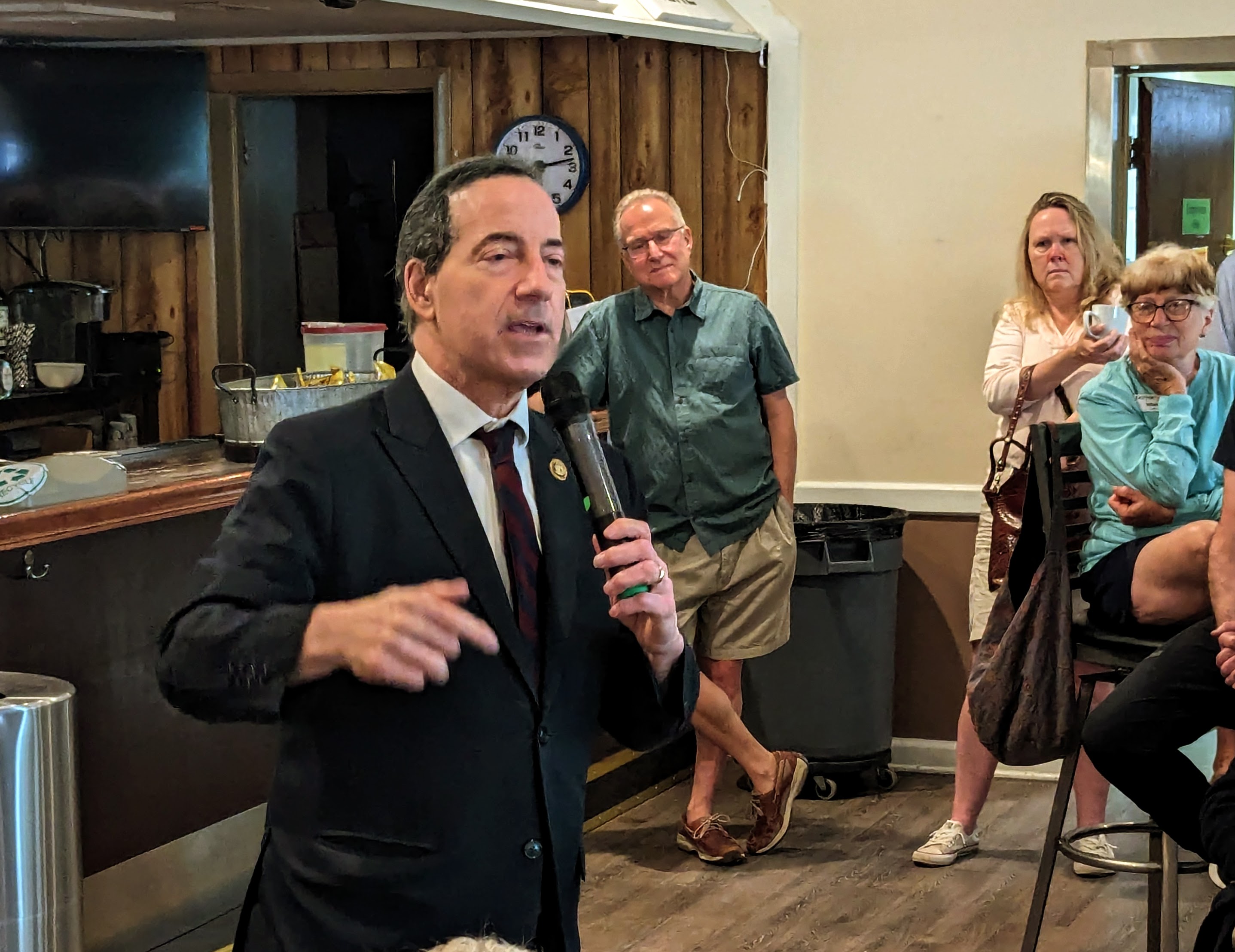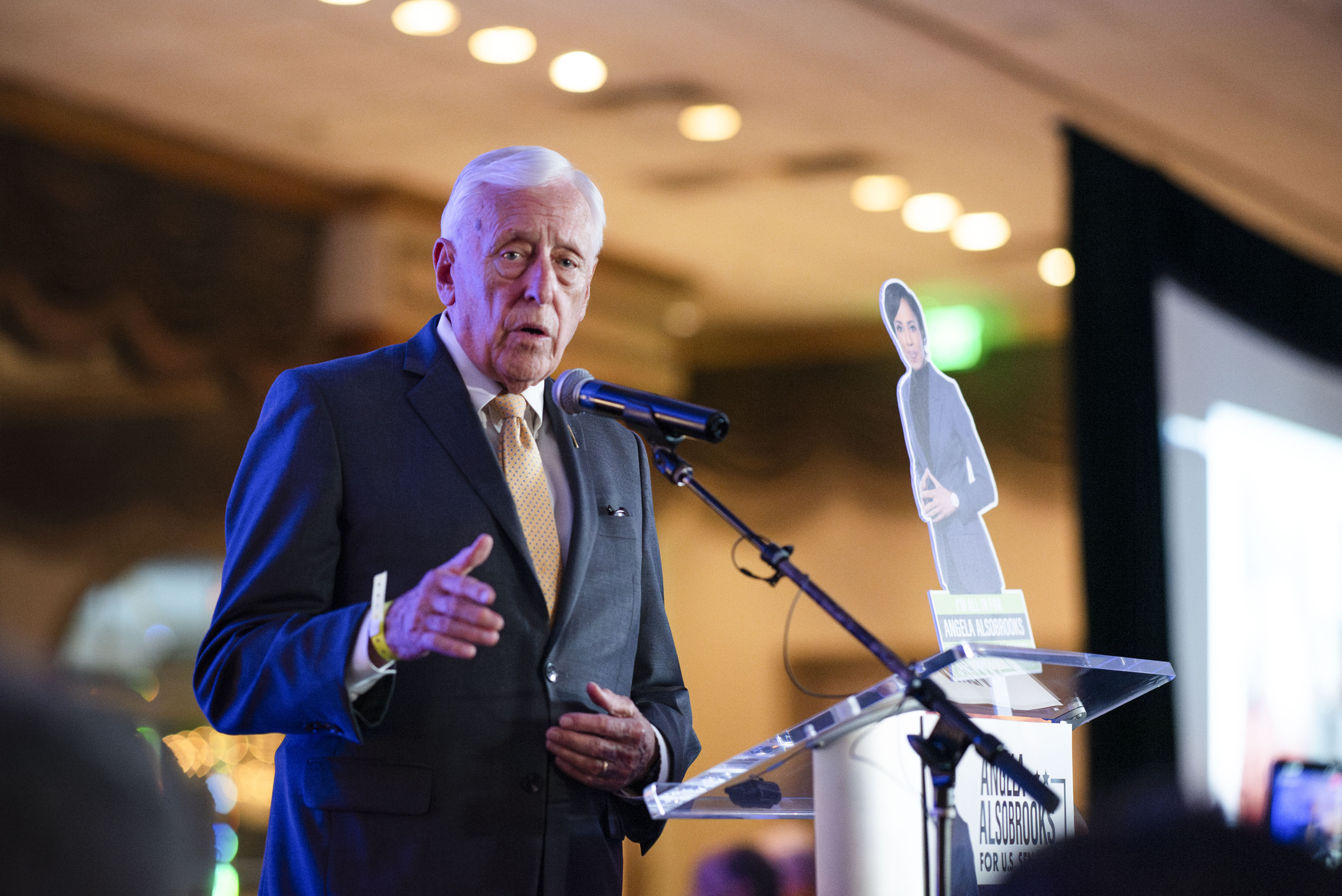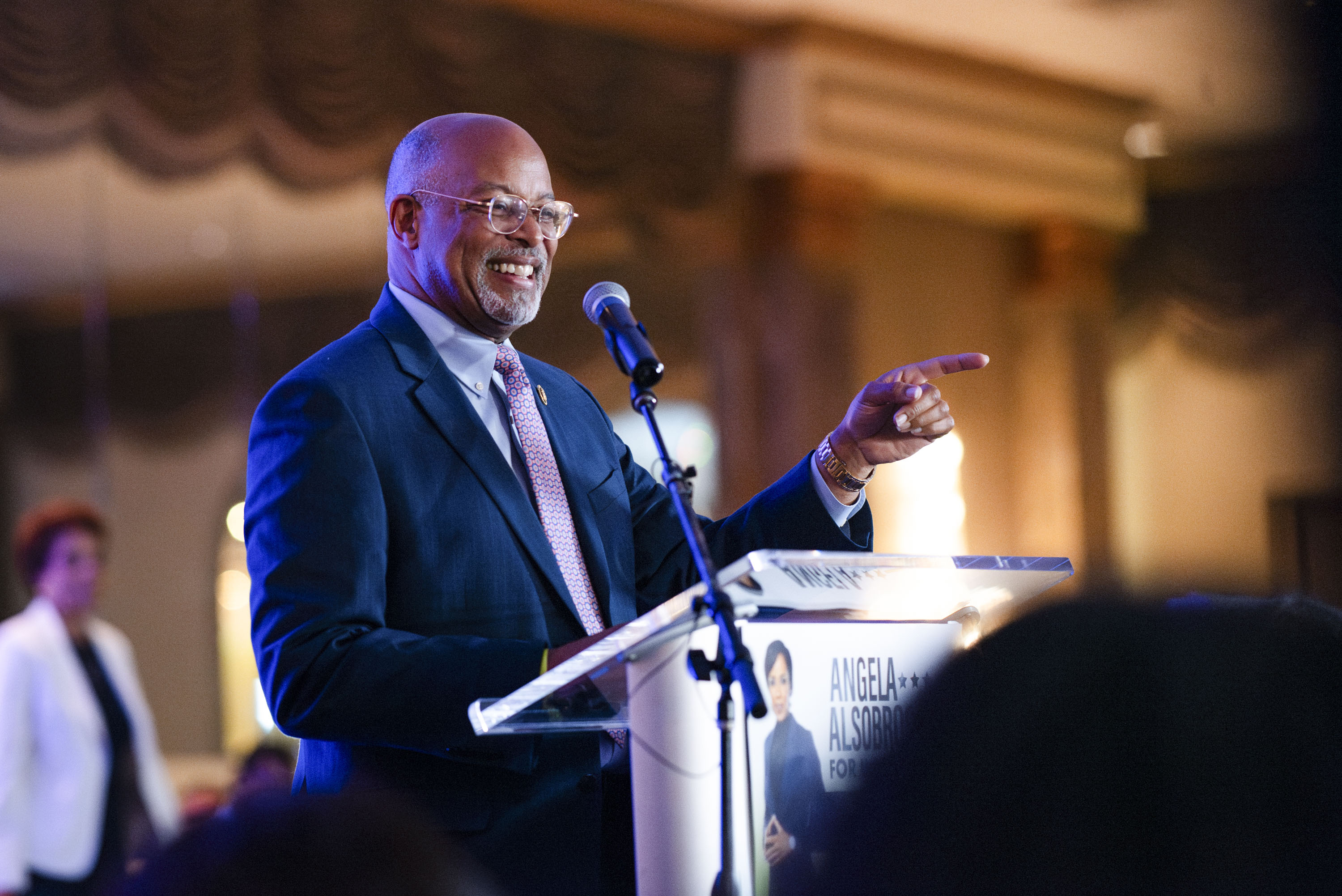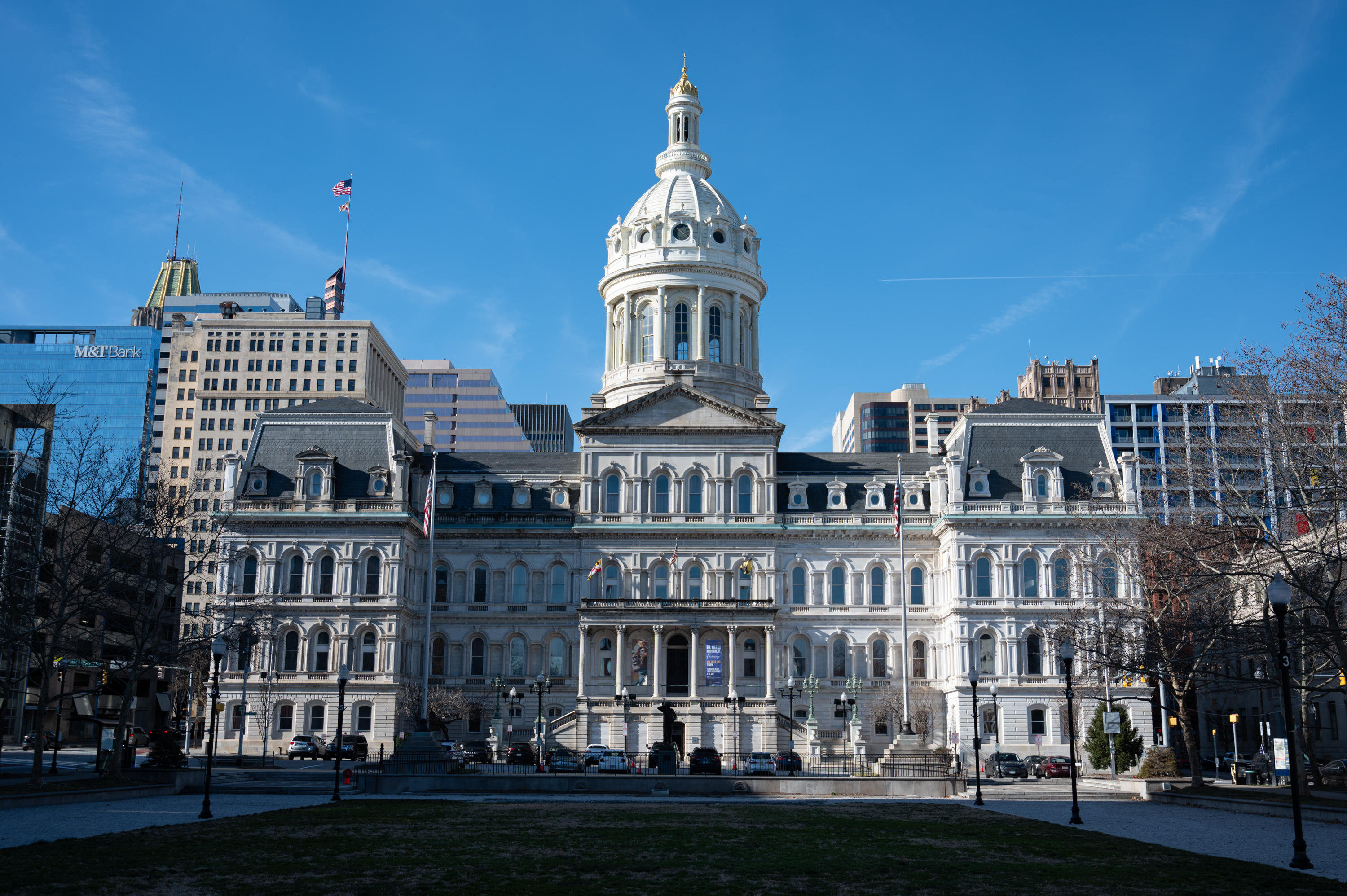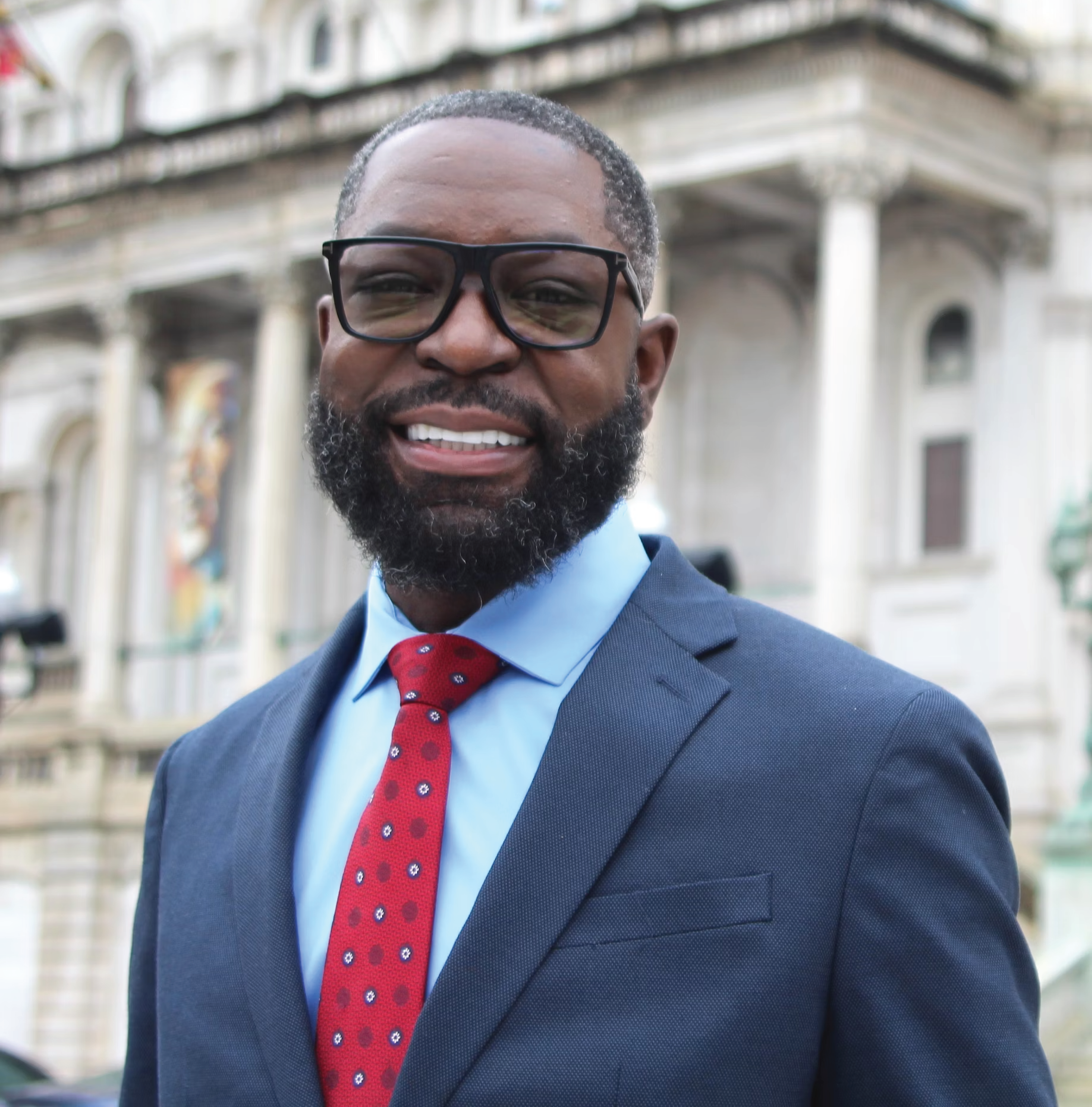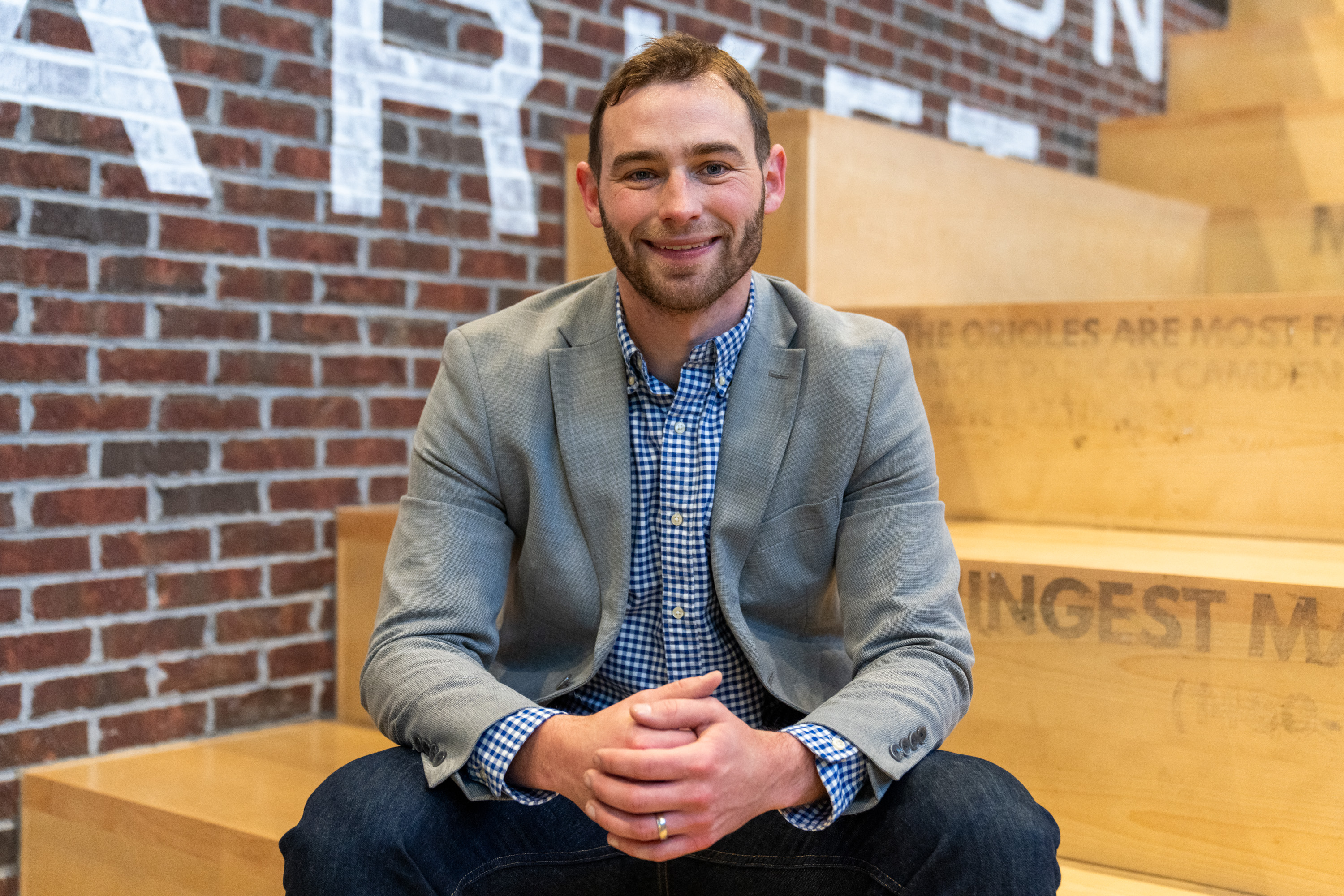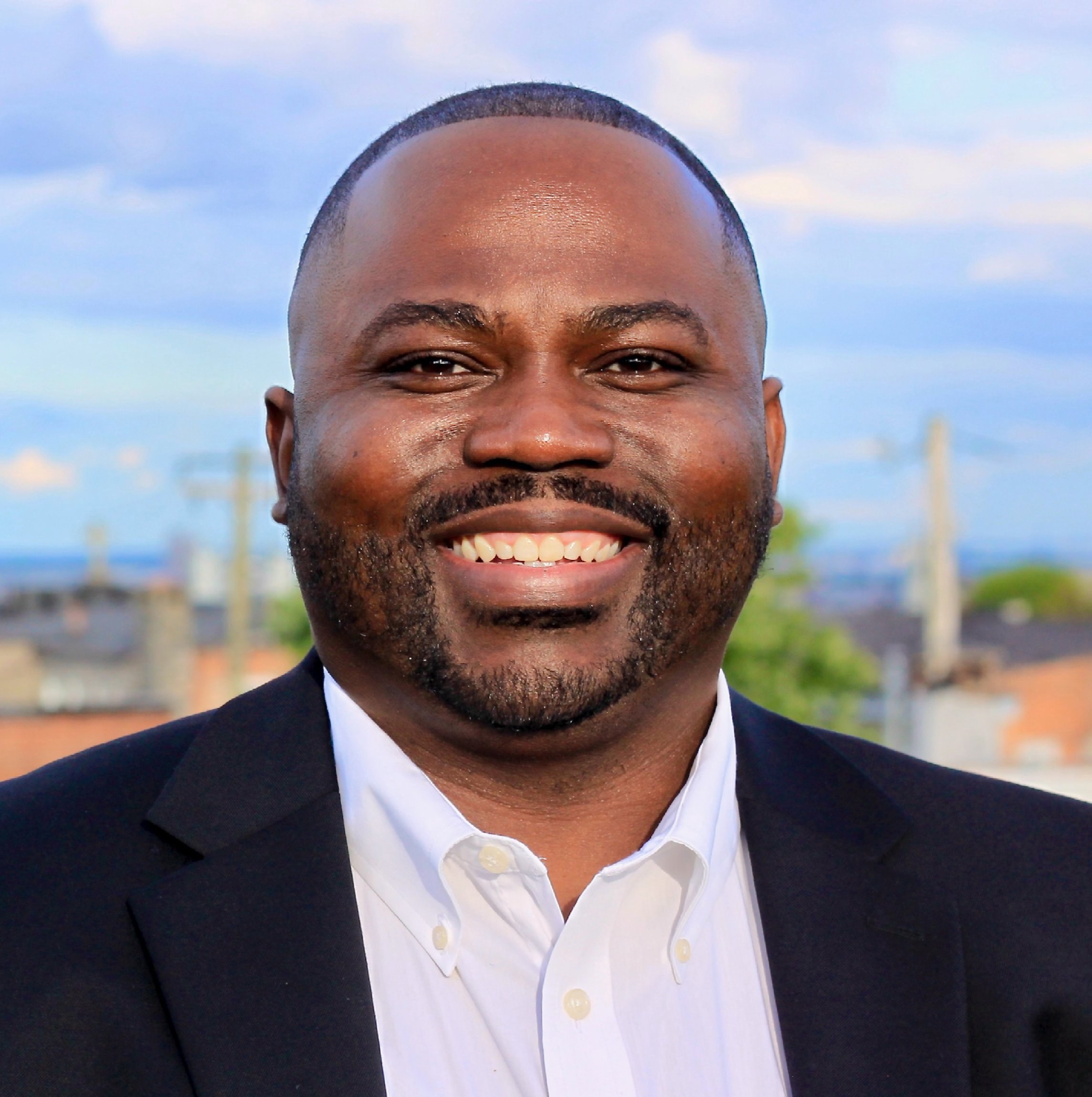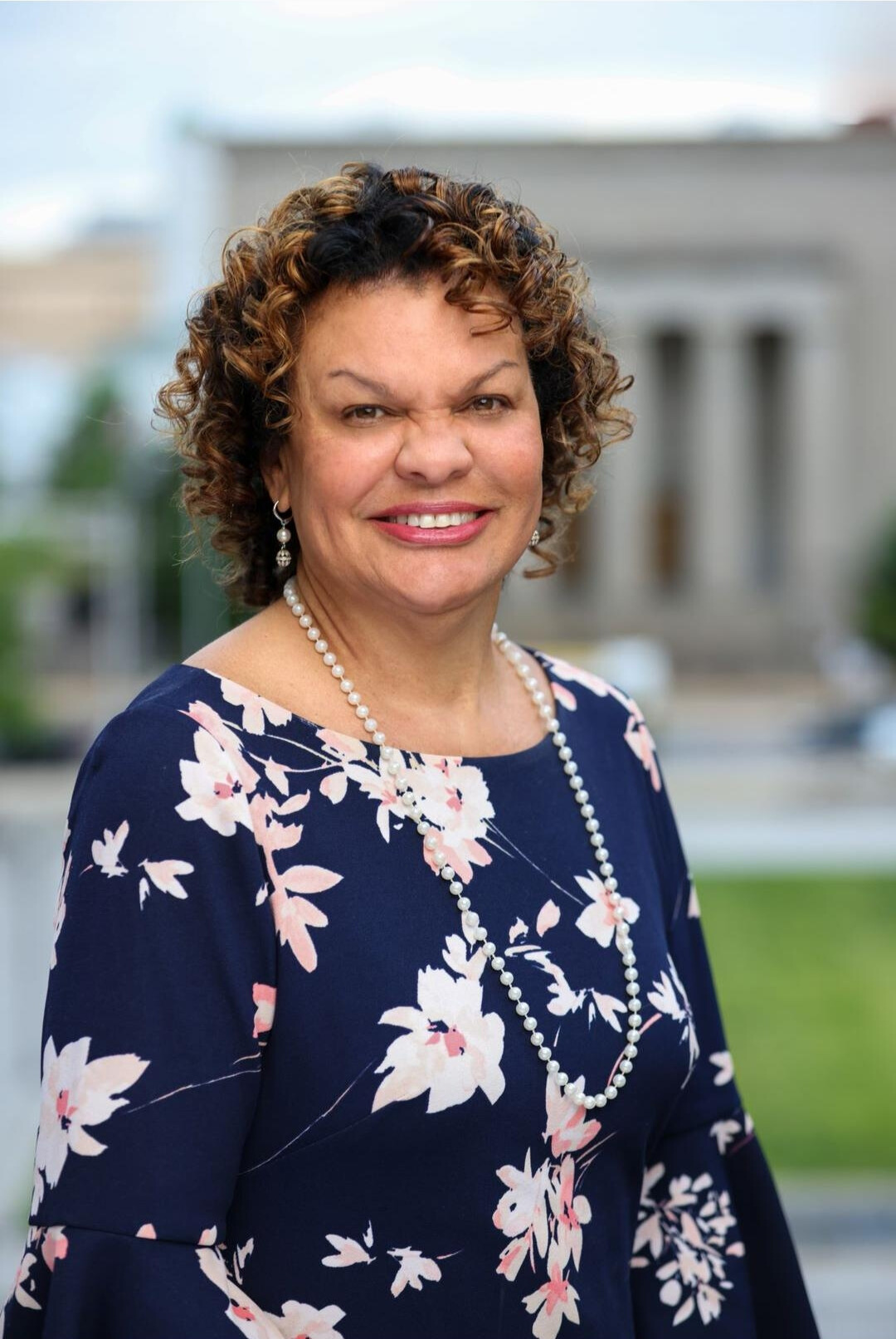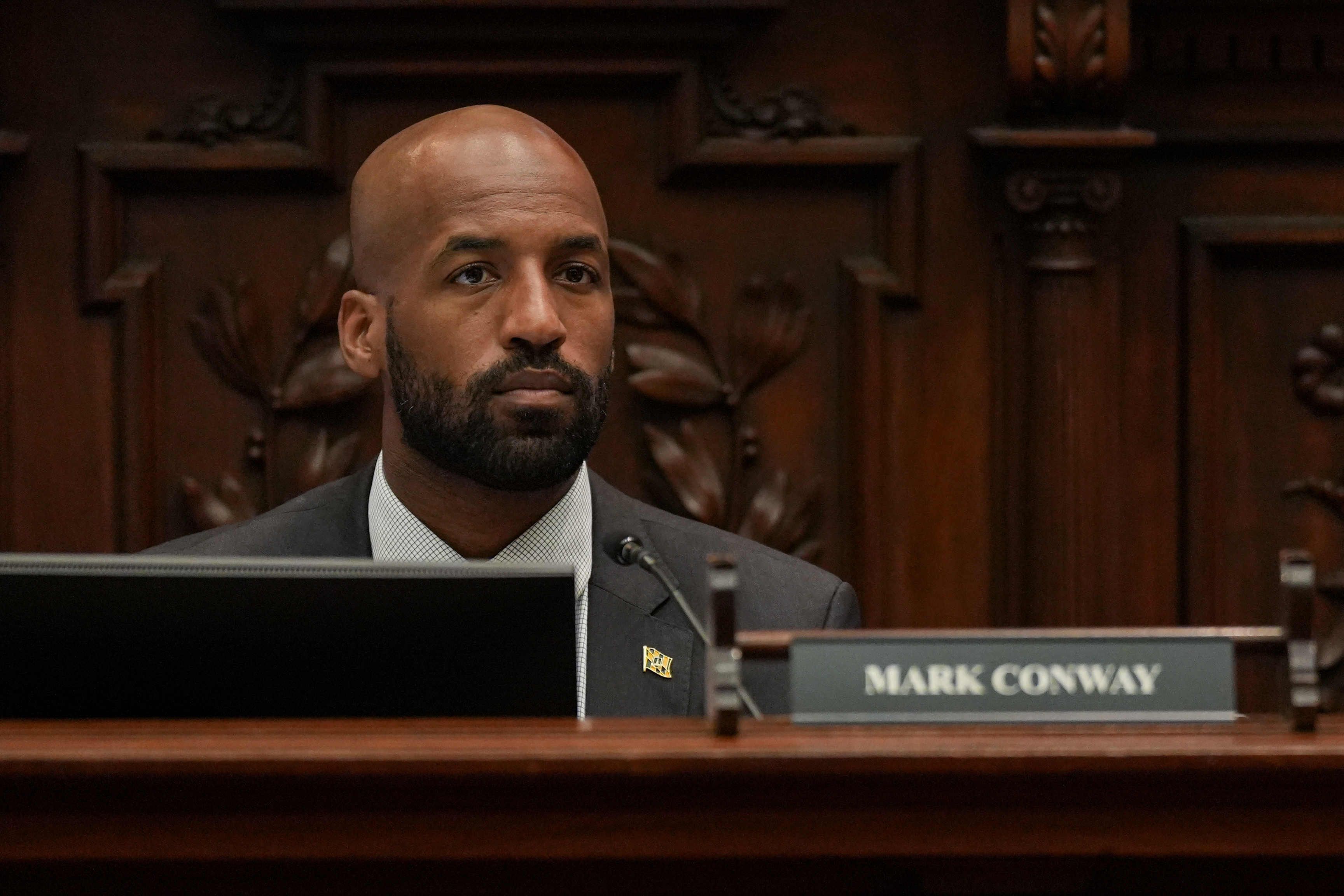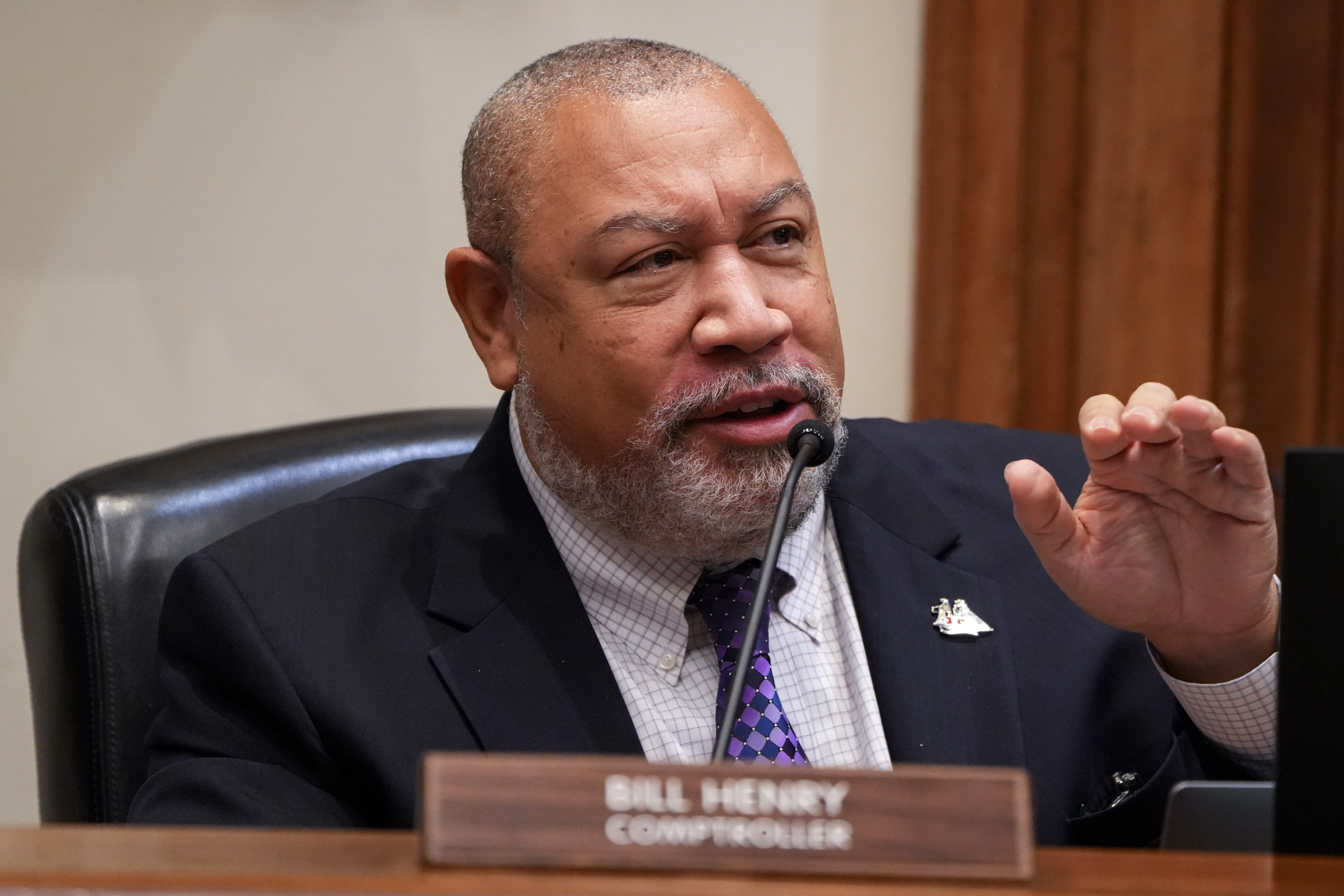What’s the job: Sets policy and chooses the school system superintendent. The board also approves the district budget.
The five-member board is elected at large, and a student member is chosen by the Carroll County Student Government Association. School board elections are nonpartisan. Voters will choose up to two candidates.
- Read more coverage from The Banner: What to know about Carroll County school board candidates
Name: Muri Lynn Dueppen
Age: 55
Personal: Married, two children; lives in Mt. Airy
Education: Bachelor’s degree, biology, College of William and Mary
Experience: Corporate relations officer at the National Aquarium, with experience in scientific nonprofit marketing; former wildlife educator; served one year on the Carroll County Democratic Central Committee; 2018 candidate for Carroll County Board of Education; community experience includes 10 years as a local public education advocate, receiving CCEA’s Friend of Education Award in 2023; co-founded and co-led a nonpartisan grassroots group, VOCAL Carroll County; advocated for a state-compliant ethics ordinance for Carroll County Government
Endorsements: Carroll County Education Association and Carroll Association of School Employees; current and former Carroll County Board of Education members: Patricia Dorsey, Robert Lord, Jennifer Seidel, Devon Rothschild, and James Doolan; Westminster Mayor Mona Becker and Sykesville Mayor Stacy Link; School Board Integrity Project; Maryland National Organization for Women PAC; Moms Demand Action gun sense candidate
Questionnaire
A. Classroom-focused human resources (teachers, education support professionals, specialists, etc); curriculum materials and instructional tools; and safe, modern facilities.
A. Minimal. The best policy allows educators complete authority in the classroom, with the full support of administration. Elementary age students do not need phones at school (if at all). Middle school age students can learn good digital citizenship - with severely limited access outside of classroom time that is strictly enforced. At high school, young adults have responsibilities that require access to communications during the day and they need to continue to learn self-regulation, so I oppose completely restricting access during free time. In all cases, communication and guidance for students and parents that encourages willing cooperation is ideal to promote buying in to the importance of compliance.
A. Increasing compensation, reducing workload, providing sufficient support, improving working conditions, and cultivating a climate of trust and appreciation are critical for all employees. The single most important way to improve educator satisfaction - plus efficacy of instruction and school performance - is to elevate the voices of and empower educators in the classroom and beyond. I will advocate for a much more frequent, formal platform outside of negotiations for learning from them the best way to overcome barriers and continuously improve. Over the years I have gotten to know dozens of amazing classroom teachers and other educators. Their commitment, expertise, creativity, and resilience should be lauded. Their ideas must play a more significant role in how CCPS designs and delivers instruction and makes the important decisions that will keep our school system strong. I will work collaboratively and cooperatively to advocate for improved state funding formulas. I will take a hard look at our local budget and strategic plan to ensure that resources are being directed where they are most needed to address teacher overwhelm while trying to remove bureaucratic burdens. I will be an empowering “employer” whose appreciation for their enthusiasm, skill, and commitment can never be doubted.
A. No – over 20 books of 60+ challenged have been banned locally. CCPS should not prop up efforts by outside political groups to dramatically reduce the number and variety of materials available. Parents should have rights regarding their own children but should not have power over others. I agree that “sexually gratuitous” material is harmful and fully support the CCPS material review process as it was intended to operate, which may result in the infrequent removal of a book or two. However, the expertise of professionals trained to select developmentally appropriate material should be respected and overriding their judgment should be exceedingly rare. Reasonable mechanisms can be put in place to honor the wishes of parents who wish to restrict what their own children access without violating the rights of other parents. As an institution of learning with a mission of preparing lifelong learners for life, the Carroll County Public School system should offer a wide range of resources for young readers. Material that is challenging is essential for achieving excellence and I support the freedoms to read, learn, and teach.
A. In a perfect world, schools are redistricted on regular, infrequent intervals primarily to ensure fair and optimal learning opportunities, achieve maximum operational efficiency, and protect against over-crowding. However, especially in school systems like Carroll County where the population density is low and distances between schools are significant, school boundaries usually only change when there is no choice – like when schools are brought on- or offline. Trying to balance enrollments is understandably met with fierce opposition if it means exceedingly long bus rides, perhaps across the County. School officials often don’t have the political will to make decisions that are almost certain to anger some segment of the families they serve. And Board members with children in the local schools are likely to be accused of favoring their own communities. It is incredibly challenging. I agree with the approach outlined in an opinion piece I read in Maryland Matters from 2019 by political scientist Sunil Dasgupta, who suggested that any effort be conducted by an independent commission whose findings are binding but implemented on a time-lag, so they are predictable.
A. As a school board member, my primary priority must be to advocate for what students need, ensuring wise, prudent use of tax dollars. In order to achieve that, other officials – like the County Commissioners – have ultimate responsibility for keeping tax rates reasonable. The collaboration between the governing bodies is what will bring balance. It is also worth noting that good schools, especially new or refurbished schools, will likely cause property taxes (but not rates) to go up due to increasing property values; so, “low property taxes” shouldn’t necessarily be a school board member’s main concern. One approach that I am eager to investigate, however, is Public Private Partnerships, which might be a mutually agreeable option for addressing the aging infrastructure in many parts of CCPS.
A. I am uniquely qualified to lead our school system in a way that sets students up for success. This includes being a dedicated local public education advocate for ten years, fighting for the resources students and educators need. The Carroll County Education Association recognized those efforts with their Friend of Education Award in 2023. The focus of the Board needs to return to academics. My husband and I put down roots in Mount Airy largely because of the excellent public schools. We need to keep them that way. That matters not only to CCPS families but also to their neighbors without kids in the system because strong schools translate to safe, friendly, economically prosperous communities. We must cultivate a community where every voice is heard and valued. We need to come together on common ground around our common values. We should elect people who genuinely believe in the promise of public education, who center decisions around putting students first, who recognize and deeply admire how amazing teachers and other educators are, and who can contribute to a climate that makes learning fun. I model those traits and will work incredibly had on behalf of every family.
Name: Amanda Jozkowski
Age: 40
Personal: Married, three children; lives in Eldersburg
Education: Bachelor’s and master’s degrees, occupational therapy, Towson University; graduate certificate in clinical, biomedical and translational investigations, University of Southern California; doctorate, occupational science, University of Southern California
Experience: Registered and licensed occupational therapist with a focus on serving children and their families; full-time associate professor of occupational therapy and occupational science at Towson University and also serves as graduate program director of the master’s professional degree program; 2022 candidate for Carroll County Board of Education; served in PTA leadership roles, including at the county level
Endorsements: Carroll County Education Association and Carroll Association of School Employees; current and former Carroll County Board of Education members Patricia Dorsey, Robert Lord, Jennifer Seidel, Devon Rothschild and James Doolan; Westminster Mayor Mona Becker and Sykesville Mayor Stacy Link; School Board Integrity Project; Maryland National Organization for Women PAC; Everytown for Gun Safety Action Fund; Run for Something
Questionnaire
A: The top three priorities for our school system’s budget should focus on helping students succeed, supporting teachers, and maintaining quality infrastructure. We need to invest in programs that directly impact students, such as career and technical education, access to mental health services, and technology that’s available to all learners. These efforts equip students with the skills they need for life after graduation. To attract and retain excellent educators, we must offer competitive salaries, create opportunities for professional growth, and provide the administrative backing they need to manage their classrooms effectively. A safe and modern environment is essential for both learning and teaching. Schools should be places where students feel secure, and facilities need to be up-to-date and conducive to learning. Parents should have confidence that their children are in a healthy environment. Thoughtful financial management will allow us to maintain and upgrade our facilities and provide support in key areas without compromising other essential needs, making sure our schools continue to offer top-quality education.
A: Students at the elementary level do not need cell phones and smart devices during the school day. For those in middle and high schools, it’s important to acknowledge that technology can be useful in the classroom when used responsibly. Cellphones can be valuable tools for educational purposes, research, and in emergencies, but modernized policies are needed to prevent misuse during class and distraction in an emergency situation when attention is critical. Clear guidelines should be developed to allow device usage for learning purposes under teacher supervision, while personal use during instructional time must be prohibited. For example, students could access devices for research, interactive learning activities, or when integrating approved apps related to the curriculum. Outside of instructional time, such as during lunch or breaks, limited use of personal devices for non-disruptive activities could be permitted, provided it aligns with school policy. Teaching responsible digital citizenship and appropriate technology use prepares students for life beyond school, where they must balance productivity and personal use of devices in adulthood. The goal should be to empower students to understand when and how to use technology effectively, without letting it interfere with their academic success or peer interactions.
A: To recruit and retain educators, we need to focus on competitive compensation, workplace environment, and addressing workload challenges. Competitive salaries aligned with neighboring counties are essential to attracting highly qualified professionals, but creating a positive work environment where educators feel valued and supported is equally critical. This includes providing ample time for planning, grading, and professional development during the school day. More support staff should be hired to help reduce non-teaching responsibilities, such as administrative tasks and behavioral management, which often lead to burnout. Correspondingly, support staff must be compensated a fair living wage and have assurances, from both administrators and policies, for the protection of their personal safety in the schools. Providing opportunities for career advancement and leadership roles will also help keep educators engaged and motivated. Additionally, recognizing teachers for their hard work and achievements strengthens their connection to their profession and makes them more likely to stay long-term. When teachers feel valued and are given the resources they need to succeed, retention improves naturally.
A: I do not support efforts to restrict materials available to students in school libraries, unless the content is wildly outside the suitable developmental range of the children in that particular school, or it is egregiously explicit/inappropriate. Restricting content based on certain viewpoints undermines the development of critical thinking and the ability of students to engage with diverse perspectives. A well-rounded education includes exposing students to various ideas, including those that may challenge their current views. This fosters empathy, understanding, and a more comprehensive view of the world. Instead of banning books, we should trust our professional educators and media specialists to curate age-appropriate materials that encourage students to think critically about complex issues. Parents have the right to guide their children’s reading choices, but blanket restrictions harm the broader educational mission by denying other families and students access to valuable learning opportunities. Students benefit from being exposed to different ideas and engaging in conversations about challenging topics with guidance from teachers, and in communication with their parents. Limiting access to certain books due to pressure from outside groups risks stifling intellectual freedom, violates students’ rights to receive information, and is a disservice to public education and our society.
A: When redrawing school boundaries, one focus should be on ensuring equitable access to educational resources and opportunities for all students. This involves considering current and projected student population growth while minimizing disruption to students’ academic and social lives. However, keeping neighborhoods intact is important for community cohesion - transportation logistics and the ability of families to stay engaged with their local schools should also be important factors in the decision-making process. Transparency and community input are essential during planning and implementation of redistricting. If, after a thorough assessment is completed, the only option is to bus students far from their homes, I would support exploration of the potential for capital projects such as building new schools in population-dense areas, developing public-private partnerships, and funding current school expansions. Each student should have access to robust academic, extracurricular, and support services, regardless of where they live. If we are thoughtful, transparent, and prioritize long-term sustainability, periodic redistricting can serve all students fairly and efficiently.
A: Although the Board of Education generates and defends their budget request to the County Commissioners, they are not responsible for budget allocation or the mechanism of funding (i.e., they cannot raise taxes or suggest how the requested budget will be financed). However, balancing school construction needs with responsibility to the community requires strategic financial planning and creative funding solutions to lessen the burden on local taxpayers. Prioritizing renovations and construction projects based on need - such as safety, accessibility, and overcrowding - ensures that we are using resources wisely. As a school system, we should also invest in energy-efficient and cost-saving technologies, which can lower operational costs over time. Engaging the community in this conversation IS an important role of the Board, which should articulate why reasonable public investment strengthens not only schools themselves, but their surrounding communities. Collaborating on project timelines and expected outcomes helps build trust and ensures that funds are used to directly benefit students and families. Board members must also work closely with state/federal delegates to advocate for support beyond the local level, particularly in a school system such as ours with rapidly evolving needs and requirements due to the Blueprint for Maryland’s Future.
A: I bring a unique blend of experiences as a parent, educator, and healthcare professional, and can offer practical solutions that work for every student in Carroll County. My background in education and child development gives me a deep understanding of both classroom dynamics and larger policy decisions that shape our schools. As a parent, I’m invested in the future of our public schools. As an educator, I understand the challenges they face, which is why I’ll fight to make sure they have the support they need, and why both the educator and school employee associations have endorsed my candidacy. I will work with all community stakeholders to make sure their voices are heard in school system decisions. My goal is to stop the politically-motivated and divisive rhetoric currently harming our school system, and refocus on what matters most: student success. I’m committed to ensuring every student has the resources, opportunities, and support they need to thrive in academics AND life. Voters can be confident that I will listen, be open to learning, seek leadership roles only within the school system (not using it as a stepping-stone to higher office), and always have the best interests of our community at heart.
Name: Greg Malveaux
Age: 53
Personal: Married, one child; lives in Hampstead
Education: Bachelor’s degree, Rutgers University; master’s degree, Howard University; doctorate, education and administration, Morgan State University
Experience: Educator for over 25 years; served as a university administrator; substitute taught K-8, taught overseas, and currently teaches dual enrollment high school students in writing and literature; also serves in the Parent Teacher Organization at child’s public school
Endorsements: Former Gov. Bob Ehrlich; state Sen. Justin Ready; Dels. Eric Bouchet, April Rose, Chris Tomlinson and Josh Stonko; State’s Attorney Haven Shoemaker; Sheriff Jim DeWees; County Commissioners Kenny Kiler, Joe Vigliotti and Mike Guerin; Carroll County Board of Education members Donna Sivigny, Marsha Herbert and Steve Whisler; Hampstead Mayor Chris Nevin; Taneytown Mayor Christopher Miller; Union Bridge Mayor Perry Jones; Manchester Mayor Melinda Smith; Moms for Liberty Carroll County chapter
Questionnaire
A: First, our top priority must be to make certain Carroll County schools are absolutely safe. Our top budget priority should be focused on funding School Resource officers and other measures that protect our children. A second priority should be making sure that our taxpayer dollars are going to directly educating our children rather than building an larger bureaucracy of administrators and assistant administrators. We should prioritize classroom education and providing the necessary funds to make learning resources available to our children. We should also continue full funding on programs that benefit special needs students in Carroll County schools. Third, I’ll ensure we invest smartly our capital funds to upgrade and maintain our aging schools.
A: I appreciate recent policy changes that remove classroom distractions and keep students engaged in learning. I would consider even greater restrictions.
A: First, we should reward excellence in teaching with incentive-based pay that recognizes outstanding teachers. Second, we should have strong disciplinary policies that fully support teachers in their efforts to educate free from distractions be it cell phones or disciplinary issues. Third, we should be proactive in encouraging parental involvement and participation in the education of children to support teacher’s efforts.
A: I will ensure our students have access to library books and other supplemental materials that help them meet all curriculum standards and indicators. Maryland parents absolutely have the right to review the materials their children are given. Books explaining or illustrating graphic sexual acts should not be permitted in our libraries. I support actions that address this.
A: I will always focus on keeping communities intact. I will insist on hearing significant input from parents and the general public before modifying school boundaries.
A: I will work alongside county and state officials to ensure we address our aging infrastructure. Our first step is preventative maintenance and addressing infrastructure needs immediately. I think it is very important to have cost controls, accountability, and on-site construction management/supervision on all school related construction projects.
A: Voters should select me because of my extensive background in education and administration. I have a child in our public school system. I will ensure we keep our schools safe and focused on academic achievement. Additionally, I am keenly aware of the importance of parental involvement in the education process. As a parent of a special needs student, I will particularly look out for the needs of that community. It is vital that our school system has strong leadership in the coming years and I believe I am well prepared by professional experience to be that leader.
Name: Kristen E. Zihmer
Age: 38
Personal: Married, two children; lives in Westminster
Education: Bachelor’s degree, Salisbury University
Experience: Owner of Windchimes LLC, a senior living consulting agency and a certified senior adviser; president of Cranberry Station Elementary PTA; member of Carroll County Public Schools’ curriculum council; previously served on the executive board of Habitat for Humanity of Carroll County; recipient of The Arc of Carroll County’s Volunteer of the Year Award
Endorsements: Former Gov. Bob Ehrlich; state Sen. Justin Ready; state Sen. Chris West; Dels. April Rose, Chris Tomlinson and Josh Stonko; State’s Attorney Haven Shoemaker; Sheriff Jim DeWees; County Commissioners Kenny Kiler, Joe Vigliotti and Mike Guerin
Questionnaire
A. There are many competing priorities to consider during the budget process. I believe the top three are:
- Maintain focus on core academic mission
- Adequate resources (people and facilities) to maintain manageable class sizes
- School and Classroom Safety & Security
A. Cell phones are a huge distraction in today’s classroom, leading to teacher frustration and a decline in student engagement and performance. Furthermore, the National Institutes of Health (NIH) has found that heavy smartphone use among adolescents contributes to chronic sleep deprivation, poor academic performance, and impaired cognitive and socio-emotional functioning. I am a strong advocate for making our schools cell-phone-free zones. I fully support an ‘off and away’ policy, respected and supported by parents and uniformly enforced by all school administrators, teachers, and staff.
A. Recruitment and retention of educators begins with competitive pay for teachers and staff, including adequate opportunities for pay increases and career advancement. I am a strong advocate for competitive pay & benefit packages commensurate with Carroll’s cost of living, while also maintaining Carroll County’s historic fiscal discipline.
In addition to fair compensation, several key factors are essential for recruiting and retaining high-quality educators. School & classroom safety (a top priority of my campaign), effective policies for maintaining positive student behaviors in the classroom, and maintaining manageable class sizes, all contribute to the feeling of support and well-being for teachers. The fact is, CCPS is a great place to teach!
Carroll County has much to offer teachers and education professionals, with many choosing CCPS for its excellence, its quality of work life, and its good governance.
A. I fully support students’ ability to access books and other supplemental materials representing multiple and varied viewpoints, and their right to be taught academic subjects from varying perspectives. When approved materials are controversial or open to question, I generally default to parental consent. Regarding books that are sexually explicit in nature, I would state unequivocally that I do not condone materials that are sexually gratuitous in nature or feature extreme sexual content, including graphic depictions of sex and/or rape, in our school libraries. Regarding literary classics and other traditional classroom staples, there are no such works for which I am in favor of exclusion or other restriction.
A. Redistricting causes uncertainty and anxiety, dividing our community; however, it is sometimes unavoidable.
To minimize disruption and tension when school boundaries need to be redrawn, the process must be inclusive, transparent, and data-driven. An inclusive process that invites contributions from all stakeholders—parents, teachers, and community members—ensures that everyone feels heard. This helps to ease frustrations, reduce tensions, and foster a sense of collective calm.
A transparent process, with high levels of communication and public access to hearings, defends against charges or suspicions of secrecy and back-room dealing.
A data-driven process, where decisions are transparently guided by factors such as population trends, attendance numbers, traditional community boundaries, and geography fosters a sense of fairness and objectivity.
A. Carroll County, like all jurisdictions in Maryland, is required to implement the 2021 legislation, Blueprint for Maryland’s Future, over a ten-year period. Under Pillar 1 of the Blueprint, this inadequately funded mandate requires CCPS to offer free pre-K for four-year-olds and for three-year-olds from families with incomes up to 300% of the federal poverty level (FPL). Additionally, four-year-olds from families with incomes between 300% and 600% FPL will be served on a sliding cost scale. To fulfill this mandate, many CCPS elementary schools will require building expansions between 2025 and 2026 to accommodate the extra classrooms.
Given this and other insufficiently funded Blueprint mandates imposed in Annapolis by our state lawmakers, I am concerned about how Carroll County—or any jurisdiction in Maryland—will be able to implement these requirements while keeping property taxes low. As a member of the Carroll County Board of Education, I will work with the Blueprint’s
Accountability and Implementation Board, and our local state legislators, as they seek compromises that give the county more time and flexibility to meet its legislated obligations.
A. My candidacy for the School Board is grounded in both my personal and professional experience and a deep commitment to upholding strong educational values. With over fifteen years of success in business as an owner and manager, I understand how to:
- Set budgets and allocate resources
- Meet regulatory obligations
- Establish collaborative relationships
- Pursue strategic goals
Serving as President of the PTA, I find myself immersed in my children’s school, and I am loving my experience there as I gain keen insights into educators’ needs, and the needs of parents and students alike.
Other community leadership roles, both past and present, have also provided me with valuable core skill sets, experience, and insight directly applicable to service on the school board. Such roles include:
- President of the Board of the Senior Provider Information Network
- Executive board member for Habitat for Humanity of Carroll County
- Committee member for The Partnership for a Healthier Carroll
- Committee member for the Youth Service Bureau’s Philanthropy Committee
These experiences make me uniquely qualified to serve effectively on the School Board, where thoughtful decision-making and collaborative leadership are paramount.
:format(jpg)/cloudfront-us-east-1.images.arcpublishing.com/baltimorebanner/I2NDDBPV6FENNAL7ABZEKMC3HA.png)

